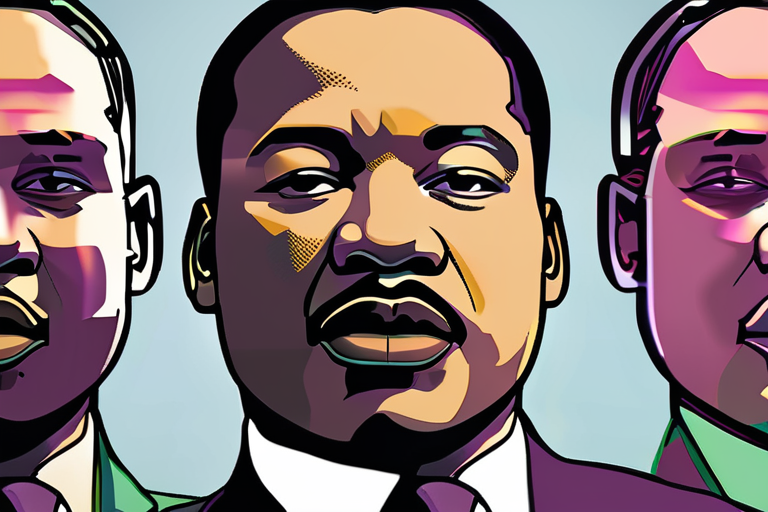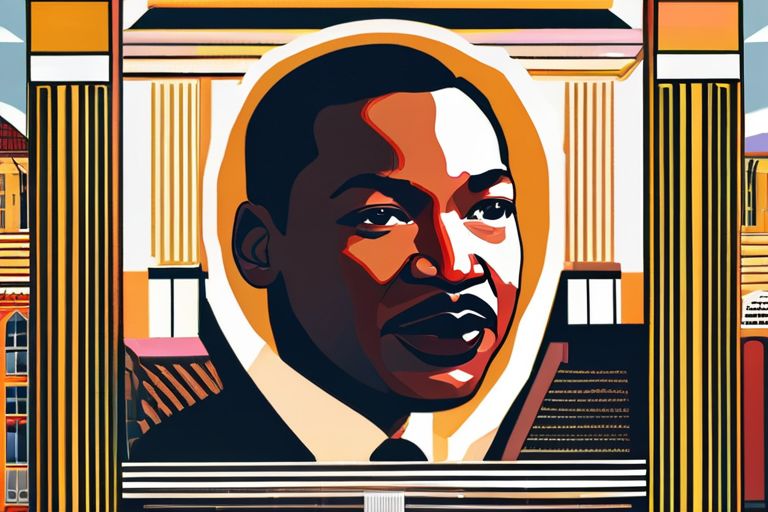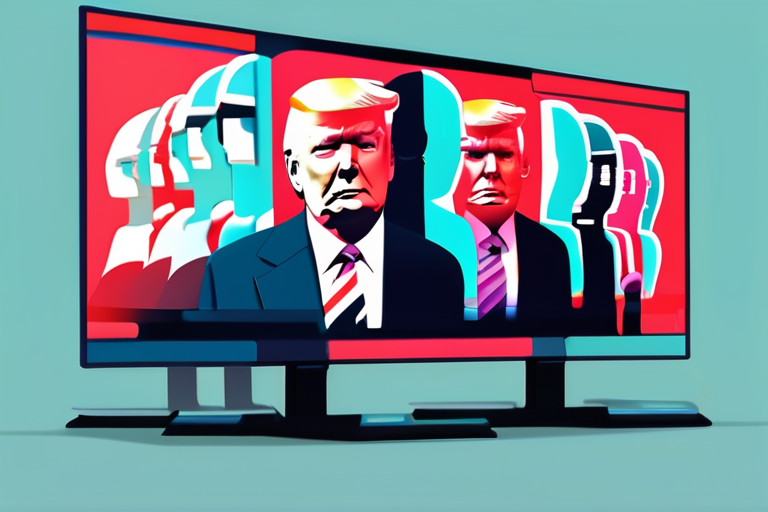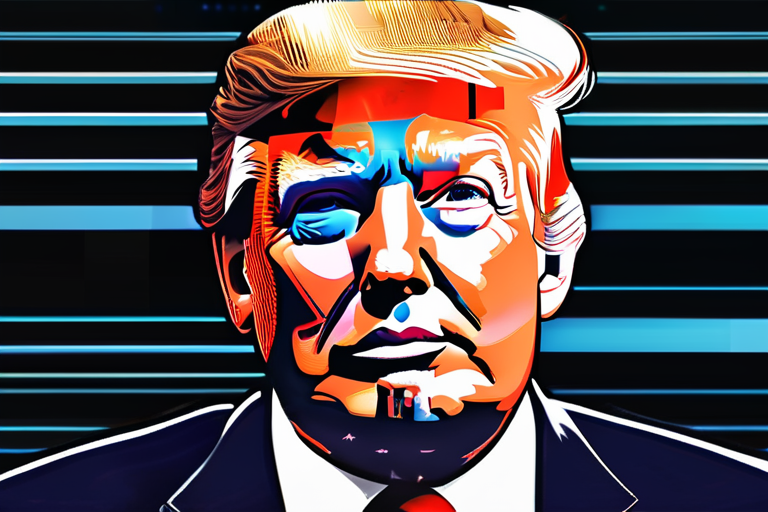Donald Trump Posts Bizarre AI Video of Himself in a 'King Trump' Fighter Jet Dropping Streams of Brown Liquid on NYC Protestors
On Saturday evening, October 18, 2025, President Donald Trump shared a seemingly scatological reaction to the nationwide No Kings protests against him via his Truth Social platform. The video, generated using artificial intelligence (AI) technology, depicted the U.S. president as a king in a fighter jet marked "King Trump," dropping what appears to be a large amount of fecal matter on protesters below.
The 19-second video showed President Trump wearing a crown and sitting in the cockpit of the King Trump fighter jet, with an oxygen mask that did not fully cover his nose and mouth. The video sparked widespread outrage and confusion among social media users, with many expressing concern about the implications of AI-generated content being used to spread misinformation or incite violence.
"This is a disturbing example of how AI can be used to create fake and inflammatory content," said Dr. Rachel Kim, a leading expert in AI ethics at Stanford University. "The fact that President Trump shared this video on his social media platform raises serious questions about the responsibility of public figures to promote accurate and respectful communication."
According to experts, the video was likely generated using a type of AI called deepfakes, which uses machine learning algorithms to manipulate audio and visual content. Deepfakes have been increasingly used in recent years for both creative and malicious purposes.
The No Kings protests, which began on Friday, October 17, are part of a larger movement against authoritarianism and the erosion of democratic norms. The protests have drawn attention from around the world, with many expressing concern about the rise of populist leaders who use divisive rhetoric to mobilize support.
President Trump's decision to share the AI-generated video has sparked debate among experts and observers about the role of social media in shaping public discourse. "Social media platforms have a responsibility to ensure that their users are not spreading misinformation or inciting violence," said Dr. Kim. "In this case, it seems clear that President Trump's actions were reckless and irresponsible."
As the situation continues to unfold, experts warn that AI-generated content will only become more sophisticated in the coming years, posing significant challenges for society. "We need to develop new strategies for detecting and mitigating the spread of deepfakes," said Dr. Kim. "This requires a concerted effort from governments, tech companies, and civil society organizations."
In related news, social media platforms have begun to crack down on AI-generated content that promotes violence or hate speech. Twitter has announced plans to introduce new measures to detect and remove deepfake videos, while Facebook has launched an initiative to promote media literacy and critical thinking.
As the world grapples with the implications of AI-generated content, one thing is clear: the rise of deepfakes poses significant challenges for society, from promoting misinformation to inciting violence. It remains to be seen how governments, tech companies, and civil society organizations will respond to this emerging threat.
Background
The No Kings protests began on Friday, October 17, in response to President Trump's comments about the movement, which he described as "a bunch of losers." The protests have since spread across the country, with thousands taking to the streets to express their opposition to authoritarianism and the erosion of democratic norms.
Additional Perspectives
Dr. Kim noted that AI-generated content is not inherently malicious, but rather a tool that can be used for both creative and destructive purposes. "We need to develop new strategies for promoting responsible use of AI technology," she said.
Meanwhile, some observers have raised questions about the role of social media in shaping public discourse. "Social media platforms have a responsibility to ensure that their users are not spreading misinformation or inciting violence," said Dr. Kim.
Current Status and Next Developments
As the situation continues to unfold, experts warn that AI-generated content will only become more sophisticated in the coming years, posing significant challenges for society. Governments, tech companies, and civil society organizations must work together to develop new strategies for detecting and mitigating the spread of deepfakes.
In related news, social media platforms have begun to crack down on AI-generated content that promotes violence or hate speech. Twitter has announced plans to introduce new measures to detect and remove deepfake videos, while Facebook has launched an initiative to promote media literacy and critical thinking.
The implications of President Trump's decision to share the AI-generated video are far-reaching, raising questions about the responsibility of public figures to promote accurate and respectful communication. As the world grapples with the challenges posed by AI-generated content, one thing is clear: we must work together to develop new strategies for promoting responsible use of AI technology.
*Reporting by Variety.*



 Hoppi
Hoppi

 Hoppi
Hoppi

 Hoppi
Hoppi

 Hoppi
Hoppi

 Hoppi
Hoppi

 Hoppi
Hoppi











